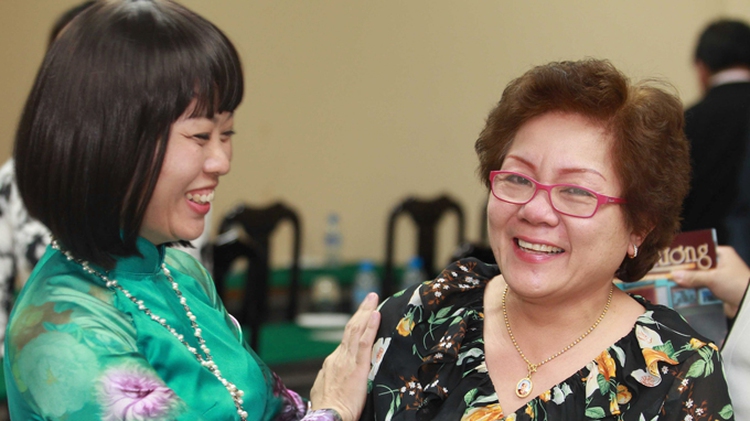
The Vietnamese language has experienced many ups and downs over the past fifty years in Thailand. Two Vietnamese teachers in that kingdom recall their experiences.
Teaching or learning the language was once prohibited in Thailand, according to Dao Thanh Teo, who spent years hiding her Vietnamese origin while living there and has taught Vietnamese for many years.
Both teachers and learners always pretended to dissociate themselves from Vietnamese, going to school with books hidden under their clothes to avoid being caught, 54-year-old Teo said.
“As I grew up in the 1960s-1970s, Vietnamese learners studied in houses that were guarded by other Vietnamese and had communicating doors so that they could escape whenever there was a raid by local authorities,” she recollected.
“They were still caught red-handed many times for ‘illegally teaching’ the language.”
Born and raised in northeastern Thailand’s Sakon Nakhon Province, Teo went to Vietnamese classes as well as studying Thai in preparation for her family’s “relocation to our hometown, Son Tay Town, in northern Vietnam in the future.”
She started teaching Vietnamese to her compatriots after finishing seven classes, but then decided to stop teaching and move to Bangkok where she opened a large restaurant.
Teo never dared to speak out her Vietnamese origin since Vietnam and Thailand had very limited relations at that time.
“I would have been unable to run my business smoothly if I had revealed my origin. I had to speak Thai, eat the Thai way, and live under a Thai name, Supac Daodecha, for twenty years in Bangkok,” Teo recalled.
“Although I never stopped aspiring to teach Vietnamese to my compatriots, I could not imagine I would become a teacher again one day.”
But last year the woman came back to Sakon Nakhon, home to many Vietnamese, to pursue her lofty aspiration of teaching Vietnamese to her countrymen at the age of 53.
Once again, she began teaching children of Vietnamese origin, and now Teo is instructing hundreds of students of all ages, including Thais, to learn the language.
Children have no time
Another teacher, Le Quoc Vi, still remembers clearly how he worried every time he went to a Vietnamese class in Thailand three or four decades ago, when the ban was still in place.
Known as Thawee Rungrotkajonkul in Thai, Vi was an electrician before he decided to teach Vietnamese.
Recently, Vi has been invited to teach Vietnamese courses at Ubon Ratchathani University, situated in northeastern Thailand, thanks to his 40 years of experience as a teacher of the language.
Many teachers like Teo and Vi said they would never expect Vietnamese to be recognized as a foreign language as it is now, given its status in the past.
But everything has changed since Vietnam and Thailand forged a much closer relationship years ago, leading the way for Vietnamese to become a popular foreign language in Thai schools and colleges.
Currently the Thai government rules that students at schools located in provinces and cities bordering any country are allowed to study the language of that country as a foreign language.
But the mission of popularizing Vietnamese among the Vietnamese community in Thailand has not grown any easier despite the language’s improved position, Vi said.
“Children in most Vietnamese families here have to spend the whole day at school and then struggle with homework at night so they have no time for Vietnamese,” he explained.
“Preserving our mother tongue is a real challenge in this modern and busy life."


Max: 1500 characters
There are no comments yet. Be the first to comment.